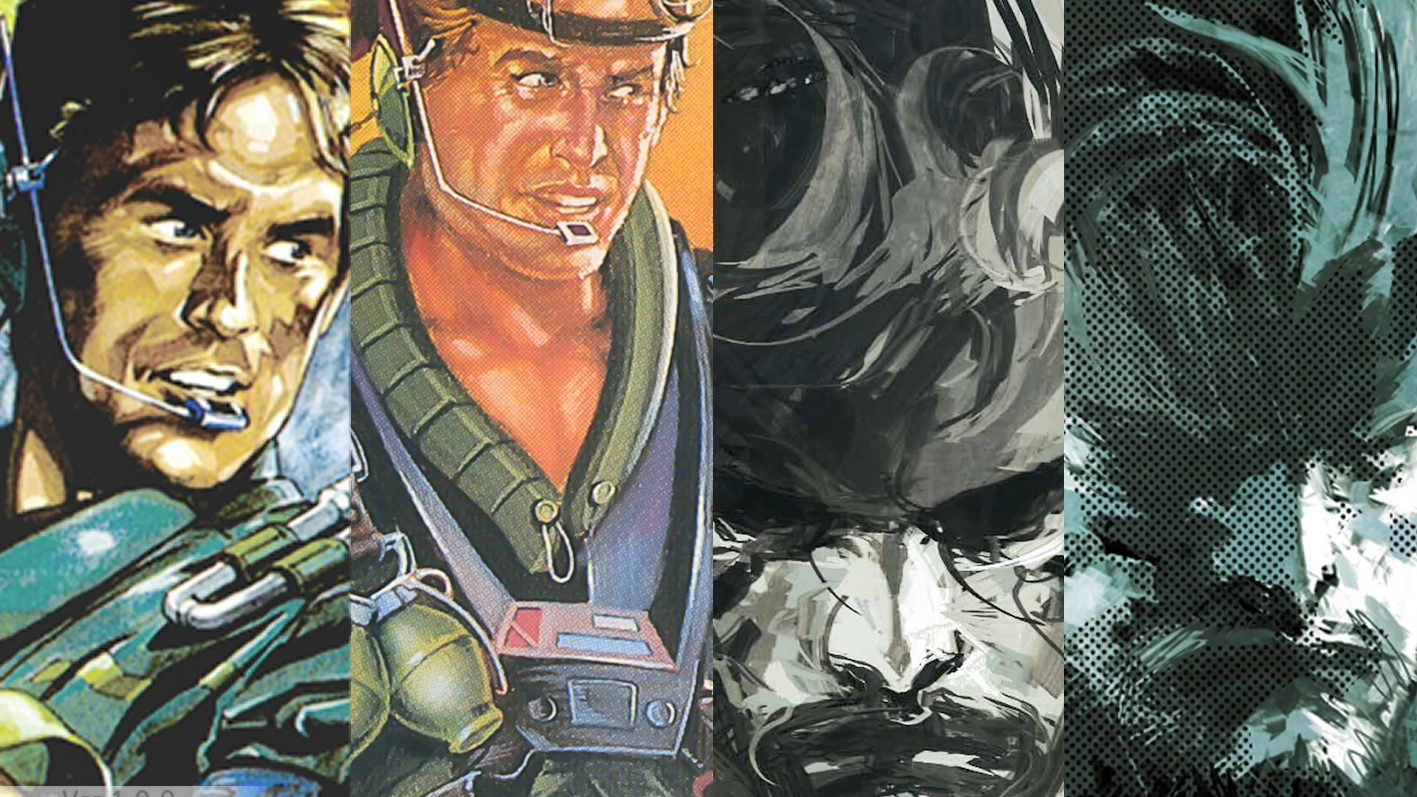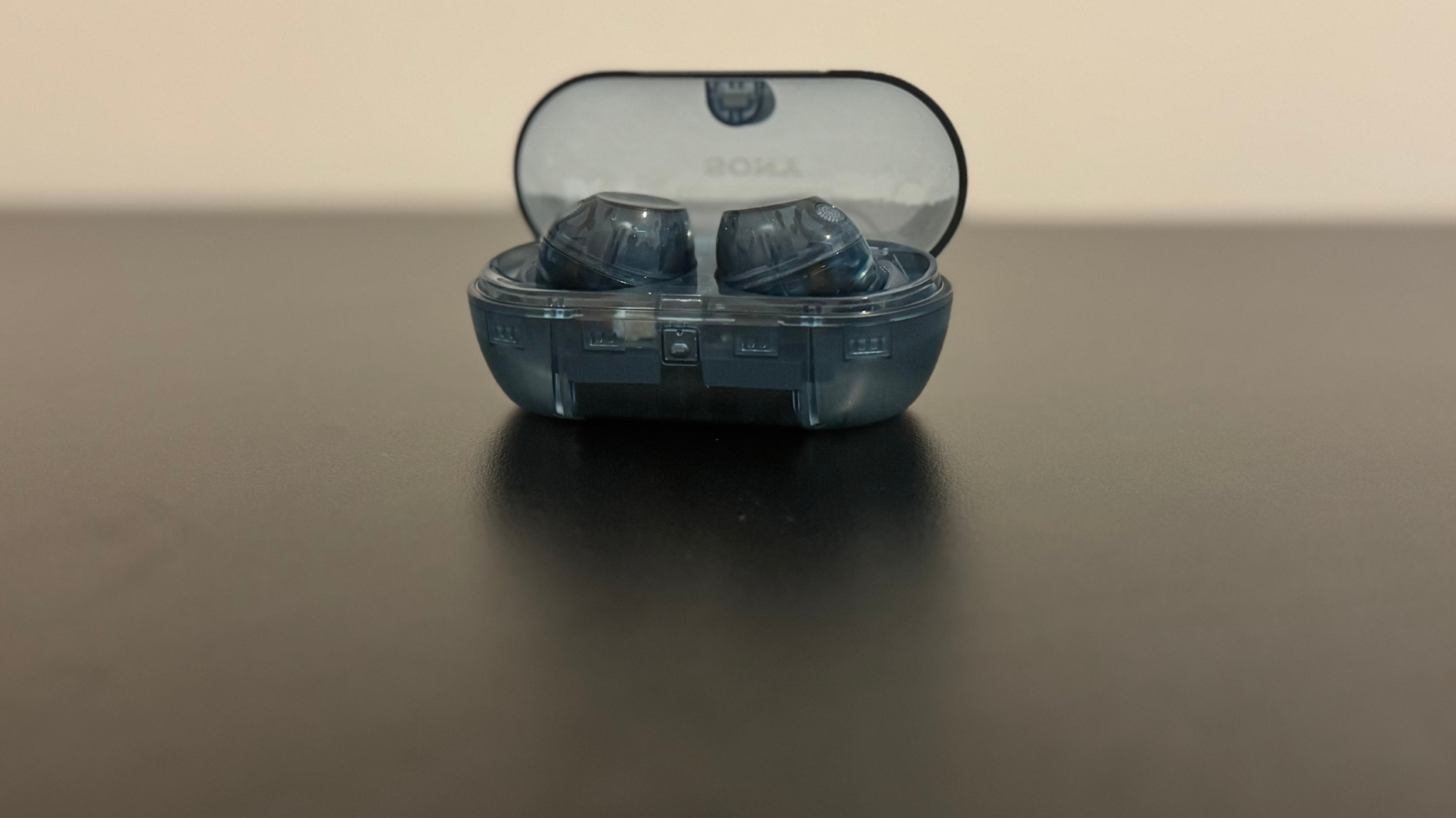The Metal Gear Solid Master Collection is packed with bonuses, but the barebones ports offer little that PC emulators don't already do better
Great games with great extras, but there was potential for so much more than ports of games locked at 720p.

Update: After this preview was published, Konami stated that the PC and console versions of Metal Gear Solid Master Collection will in fact run at 1080p, 60 fps, and not 720p as stated in the interview below. They did not specify which games, but presumably this only applies to MGS2 and MGS3, as the original Metal Gear Solid was clearly rendering at a much lower resolution, like its native 240p. A representative did not answer my more specific questions regarding rendering and output resolutions across the various games. Original story below.
The news that the upcoming Metal Gear Master Collection wouldn't support mouse and keyboard on PC was a clue—and a warning—that Konami was not aiming for a top-to-bottom remaster of its most beloved series. After playing a not-quite-final version of this upcoming re-release at Konami's Los Angeles offices last week, I'd say "collection" really is the operative word here: this is the equivalent of a vinyl album box set packed with new liner notes, little-heard demo tracks and many other extras, but without a recording engineer giving the original analog recordings a new mix.
Konami remastered these games a decade ago, and has apparently decided that treatment was good enough.
For PC gamers, my excitement in having Metal Gear Solid 1, 2, and 3 easily playable is tempered by how much modern CPU/GPU power Konami has left untapped to enhance these games. My favorite of the bunch, Metal Gear Solid 3, was never released on PC, so it'll be great having it on Steam. But if you're hoping for a definitive version of these games, you may be better off turning to emulation than this collection, which is stuck rendering the games at the same 720p they ran at in the PS3/360 HD Collection released 12 years ago.
Nailing down that information proved a little difficult. At Konami's demo event I spoke with Konami brand marketing director Benjamin Kinney, who didn't provide the clearest answer when I asked what resolution the games were rendering at.
"There have been visual adjustments made, but it would be disingenuous for me to say 'oh, it's suddenly a new higher resolution.' When you play them, they're going to be close to the original HD port level. It's going to be that resolution from that HD collection. But you may notice it looks better or runs leaner or has a better framerate, but we haven't gone through and re-rendered things. They are as intended with the original gameplay experience."
Nintendo Life was similarly confused, and got confirmation from Konami after the event that across platforms, the Master Collection versions of the games will still be 720p.
Keep up to date with the most important stories and the best deals, as picked by the PC Gamer team.
Kinney told me that Konami has "enabled the games to run on 4K monitors," but said that the intent was to "see the games at the visual fidelity intended when they originally launched."
"If you rendered Metal Gear Solid 1 at 4K and just simply upressed it, it doesn't accomplish the goals of what the game wants to accomplish. It looks quite different," he said.
But do these nearly untouched 2011 remasters really represent "the original gameplay experience?" To me there's as much ambiguity in that phrase as there is in one of Kojima's conspiracy monologues about the Patriots.
- Should the PS2 games run at a 4:3 aspect ratio instead of 16:9?
- Why 720p and not the original 480p?
- Should the collection offer artificial scanlines to better replicate the CRT TVs these games were made for?
- Should MGS3 run at only 30 fps?
Kinney is right that simply upressing games isn't always the best approach, and it's certainly not the truest to their original aesthetic. But at the same time, playing a 720p game on a 1440p or 4K monitor or TV is far from the experience Kojima Productions had in mind when making these games two decades ago.
Re-releases like this only reinforce my view that emulating classic games is often the best way to experience them, giving players the means to either closely replicate the original experience or enhance it in ways they find ideal on modern hardware. From what I played (unfortunately limited to the Nintendo Switch version), MGS1 in the new Master Collection is clearly running in an emulator itself, outputting at a low resolution. I dig the chunky, low res pixelated look here, but Konami could've surfaced the option to change the internal rendering resolution, especially on PC where performance is no object. And the visual difference would be massive—just check out this comparison using emulator Duckstation:
I'd argue that despite what Kinney said, MGS1 holds up incredibly well when rendered at 6x its original resolution. Maybe other players would disagree, and prefer to render the game at its original 240p but apply scanlines that recreate the effect of a CRT TV.
MGS looks rough because of dithering and simple textures. CRT-Mask/scanlines help a lot to blend all in IMO.Metal Gear Solid 1998#Playstation#Retrotink5x PRO1) 1440p | RGB | Sharp Pixels2) 1440p | PVM600 Scanlines (see second post👇) #retrogaming #MetalGearSolid #PS1 pic.twitter.com/onsUAxJjqWApril 23, 2022
These are both legitimate options that look really different. A true definitive release of these games should attempt to offer the best of what modern hardware is capable of and strive to represent the original aesthetic experience, while making it clear to less tech-savvy players why the different options exist.
While this collection limited the remastered MGS2/3 to 720p, the very same versions of the game can be played in the PS3 emulator RPCS3 at 4K and 50-60 fps on a decent PC, as demonstrated in this video. It's not a perfect experience—there are some minor graphical issues like broken depth of field and rain effects—but, hold on a second, those issues exist in the 2011 HD Collection too! Emulating old games is a tricky challenge, and even the developers themselves (the HD Collection ports were handled by the excellent Bluepoint and Genki, but overseen by Kojima Productions) often don't get it quite right.
According to Kinney, Konami has gone back into these new releases of the games to fix some minor issues and make small adjustments here and there, so they're not quite just the 12-year-old versions. Diehard Metal Gear players are going to love digging through all the bonus material in the Master Collection, like:
- Screenplay books running through the game's scripts
- "Master books" offering detailed breakdowns of the stories as well as trivia and guides
- Alternate versions of the games like MGS Integral
- The gorgeous MGS and MGS2 digital graphic novels
- A soundtrack jukebox
And this release even includes something remasters often overlook: being able to select from all the different audio and language options regardless of your region.
But still, it's hard not to look at this release like a missed opportunity. While fan-made emulators aren't as simple to use as clicking launch on Steam, they already offer a better experience—either truer to the original consoles, or enhanced for modern hardware depending on your preferences—than the Master Collection. It's a shame Konami didn't aspire to matching what volunteer developers have made possible for so many years.

Wes has been covering games and hardware for more than 10 years, first at tech sites like The Wirecutter and Tested before joining the PC Gamer team in 2014. Wes plays a little bit of everything, but he'll always jump at the chance to cover emulation and Japanese games.
When he's not obsessively optimizing and re-optimizing a tangle of conveyor belts in Satisfactory (it's really becoming a problem), he's probably playing a 20-year-old Final Fantasy or some opaque ASCII roguelike. With a focus on writing and editing features, he seeks out personal stories and in-depth histories from the corners of PC gaming and its niche communities. 50% pizza by volume (deep dish, to be specific).

